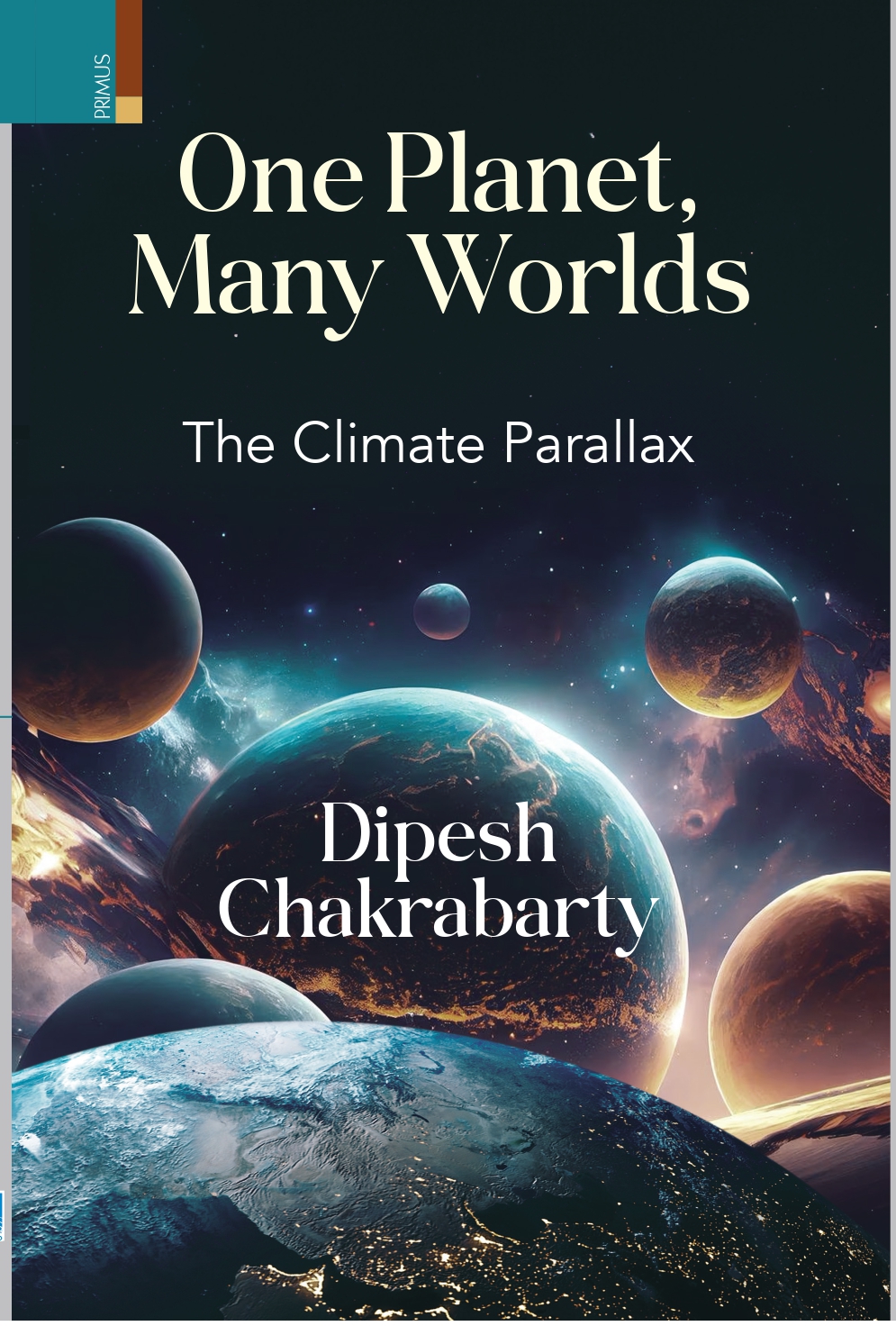One Planet, Many Worlds: The Climate Parallax by Dipesh Chakrabarty

INFORMATION
- AUTHOR : Dipesh Chakrabarty
- HB ISBN : 978-93-5852-764-3
- Year : 2024
- Extent : 144
- Discount available on checkout
- Usually dispatched within 3 to 5 working days.
A historian offers a unique look at the pandemic, climate change, and the human versus non-human.
Climate change represents a deep conundrum for humans. It is difficult for humans to give up the unequal and yet accelerating pursuit of a good life based on an insatiable appetite for energy sourced mainly from fossil fuel. But the same pursuit, scientists insist, damages the geobiological system that supports the existence of interrelated forms of life, including ours, on this planet. The planet, seen thus, is one. The global sway of financial and extractive capital connects humans technologically, but they remain divided along multiple axes of inequality. Their worlds are many and their politics still global rather than planetary. In the narrative presented here, Chakrabarty continues to explore the temporal and intellectual fault lines that mark the collapse of the global and the planetary in human history.
Content:
Preface
Introduction: The Planet and the Political
The Pandemic and Our Sense of Time
The Historicity of Things, including Humans
Staying with the Present
Acknowledgments
Notes
The Author
Dipesh Chakrabarty is the Lawrence A. Kimpton Distinguished Service Professor of History, South Asian Languages and Civilizations at the University of Chicago. He is the author of The Calling of History: Sir Jadunath Sarkar and His Empire of Truth. Chakrabarty is the recipient of the 2014 Toynbee Prize, which is given to a distinguished practitioner of global history and the Tagore Memorial Prize by the Government of West Bengal in 2019. He has recently been elected a Corresponding Fellow of the British Academy.
‘For Chakrabarty, ‘global’ does not refer to the entirety of the world, but rather to a particular mode of thought. . . . In critiquing the global, Chakrabarty offers another mode of thinking that can perhaps provide the philosophical grounding for a truly ecological approach. … The human becomes only one node within a much more complex and multivalent system of actors, both human and non-human.’
— Green European Journal
‘This book provides a thought-provoking, complex discussion of how climate change challenges the humanities, history, and the human sense of time but presupposes a command of intellectual history… Overall, Chakrabarty outlines the overlapping of different histories once thought to be distinct. The planet itself, he argues, is a “humanist category”.’
— Choice
‘Chakrabarty is a prominent figure in postcolonial historiography, and his thinking about a multiplicity of worlds undoubtedly has overtones of the late-20th-century concept of first-,second- and third-world countries. … Of all the books I’ve discussed here in 2023, One Planet, Many Worlds is the one that I expect to reread in the new year.’
— Scott McLemee in The Chronicle of Higher Education




